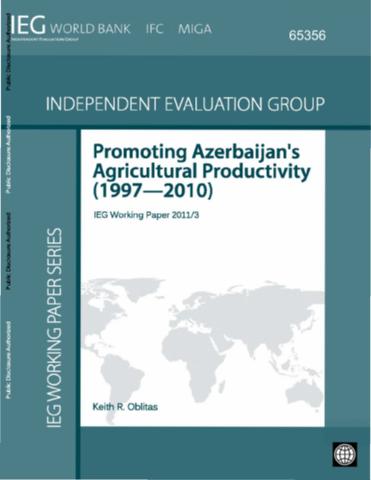Resource information
The objective of this study is to evaluate the World Bank Group's (International Bank for Reconstruction and Development [IBRD], International Development Association [IDA], and International Finance Corporation [IFC]) effectiveness in promoting growth in agricultural productivity in Azerbaijan, and to derive lessons that may be relevant for the World Bank Group's future engagement in Azerbaijani agriculture. The study covers the World Bank's entire agricultural lending and analytical portfolio, and the full period of the Bank's involvement with Azerbaijan's rural sector, commencing in 1997 when the first agricultural project was launched, to 2010. The report begins (section one) with an overview of agriculture's role in Azerbaijan's economy, the strategic need for increased agricultural growth and the technical, economic and policy constraints impeding growth. Section two reviews the Bank's lending program and analytical work, and considers the appropriate balance between lending and analytical activities. Section three assesses the Bank's impact on agricultural productivity, and section four considers how environmental management, social welfare and agricultural growth can be mutually complementary. Section five and six reviews cross-cutting aspects of the Bank's work in Azerbaijan's agriculture sector, including the Bank's effectiveness as an innovator and as a partner with the government in agricultural reform. And section seven assesses the impact of the Bank's own institutional structure and practices on its operational effectiveness promoting agricultural productivity. Concluding the report, Section 8 highlights the main areas where the Bank could have had greater impact on the country's agricultural productivity, and the lessons thereby emerging for the Bank's agricultural role in Azerbaijan in future years.


